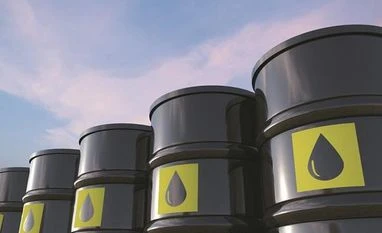Indian companies are bracing for yet another crisis as oil prices jumped by more than 5 per cent on news that Russia launched a military attack in Ukraine. Brent Crude Futures were trading at over $105 per barrel, crossing the $100-level for the first time since 2014.
Indian CEOs were worried over the impact rising oil prices will have on their sales and raw material costs. “If oil remains at these levels, everyone will be hit. The impact may not be immediate, because we already have raw materials and finished goods stocks for the next 2-3 months,” says Abhijit Roy, managing director & CEO, Berger Paints India. “But if it continues to remain at these elevated levels, there will be some impact on raw material prices, especially the solvents. But hopefully, we will be able to pass it on to the customers,” Roy said.
In addition to rising oil prices and disruption in supplies, CEOs are worried how rising oil prices will impact their sales — especially auto sales as petrol and diesel prices will go up reflecting the higher crude oil prices.
“Rising fuel prices increase the running cost of vehicles. This, along with cost of acquisition, is an important criterion that affects consumer buying decisions. Therefore, higher fuel prices are a negative for auto buying sentiments,” said Shashank Srivastava, a senior executive director at India’s biggest car maker, Maruti Suzuki India.
“Input cost increase puts pressure on profitability and prices but it really depends on how long they persist. We have to carefully monitor these,” Srivastava said. The fear of increased petrol and diesel prices comes at a time when car sales are already subdued and two-wheeler sales volumes are expected to fall for the third straight year.
In the quarter ending December 2021, most Indian companies reported higher input costs and it is expected to remain high due to the conflict. “Inflation in the recent quarter was unprecedented at over 13 per cent. There is continued inflation in hydrocarbon derivatives, paper-based packing material, raw honey, edible oil and some key spices that we use. We have offset part of the inflation impact through calibrated price increases of about 5 per cent in key products apart from cost-saving initiatives,” said Dabur India CEO, Mohit Malhotra. “While we are closely watching the situation now, we will have to take another round of calibrated price increases in case the inflationary pressures continue unabated,” Malhotra said.
CEOs of other consumer products companies said war risk premium and freight costs have gone up by 20 per cent as all ports in Ukraine have shut down. “Vessels are stranded and their number will also reduce due to wartime risk,” said Angshu Mallick, MD & CEO at Adani Wilmar, an edible oil maker. Mallick added that under the prevailing circumstances, one needed to be careful with supply chain and logistics. “Also, of the overall India's sunflower oil imports, 70 per cent comes from Ukraine and 20 per cent from Russia and sunflower oil prices have already gone up,” he said.
“For the previous 7-8 years it (crude oil) had been below $100 per barrel but today (Thursday) it crossed the $100 dollar-mark, impacting several industries, in addition to the food industry. For instance, formalin oil, RBD oil will see a hike in price. Price hikes will have a huge impact on most of our products. In addition to that, vegetable oil, which is used in several other FMCG products like anticaking agents, in making soaps, etc, will also experience inflation,” Krishnarao Buddha, senior category head at Parle Products, said.
Buddha said rise in input costs, directly or indirectly, will cause brands to take a hike in prices, stressing the bottom line. “It might be partially absorbed by companies and then passed onto consumers or passed on directly. We have been witnessing a rise in price since April 2021. And with the current situation, trade costs are bound to rise across industries, seeping down to as low as items of daily utility,” he said.
The oil and gas sector will be hit hard as India imports nearly 85 per cent of its crude oil requirement from overseas. Any price rise in crude oil prices will lead to inflation across the economy. Prachur Sah, Deputy CEO of Cairn Oil and Gas, a Vedanta group firm, said, “From our point of view, this highlights the importance of producing domestically. We should keep increasing investments in oil and gas so that we can increase domestic production and reduce dependence on imports.”
According to a Crisil estimate, the global spot LNG prices, which averaged $27-30 per mmBtu in January 2022, could rise to $35-40 if the strife continues.
According to Roopwant Singh, managing director of Gujarat Mineral Development Corporation (GMDC), while the oil price hike may not affect the company’s customers, which are largely MSMEs, it will affect input costs. “The oil price hike will have an impact on our variable cost, of which diesel is a significant part. But as our input costs go up... we will pass it on to our customers,” Singh said.
(With inputs from Shine Jacob & Vinay Umarji)
Unlock 30+ premium stories daily hand-picked by our editors, across devices on browser and app.
Pick your 5 favourite companies, get a daily email with all news updates on them.
Full access to our intuitive epaper - clip, save, share articles from any device; newspaper archives from 2006.
Preferential invites to Business Standard events.
Curated newsletters on markets, personal finance, policy & politics, start-ups, technology, and more.
)